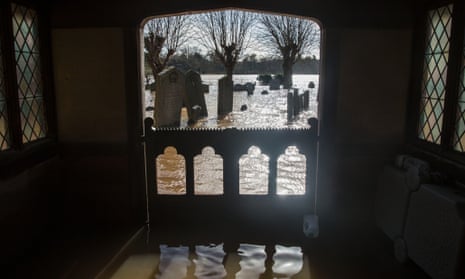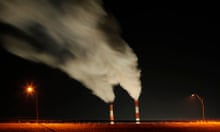Religious leaders should pull their money out of investments in fossil fuel companies and encourage their followers to do the same, according to the UN's climate chief.
Christiana Figueres, who is speaking at St Pauls Cathedral on Wednesday night, urges faith groups to "find their voice" and "set their moral compass" on climate change, in an article published in the Guardian.
Students and other groups have been campaigning in the US and Europe to encourage universities, local authorities and investors to divest from fossil fuel interests. On Monday, Stanford University became the latest high profile institution to do so, saying it would no longer make investments of its $18bn (£11bn) endowment fund in coal mining companies.
Politicians, businesses and civil society are also trying to build momentum for an international deal on climate change ahead of a key meeting of nearly 200 countries in Paris in 2015. Ban Ki-moon, the UN secretary general, is convening a meeting of world leaders in New York in September to push for progress towards the deal.
"There are a myriad of ways in which churches and mosques to synagogues and temples can assist towards an ambitious climate agreement," said Figueres, citing the fossil fuel divestment campaign as a way they could assist efforts to reach a climate deal.
She highlights the Synod of the Church of England, which in February voted to review its investment policy on fossil fuels.
While the CoE is not yet looking at the sort of divestment from fossil fuel companies that the United Church of Christ has done in the US, its ethical investment advisory group has established a subgroup to take expert advice on climate change and investment.
Figueres, who is executive secretary of the UN Framework Convention on Climate Change, warns that climate change will make many of the issues that religious groups campaign on, such as tackling hunger in poorer countries, harder.
"It is time for faith groups and religious institutions to find their voice and set their moral compass on one of the great humanitarian issues of our time. Overcoming poverty, caring for the sick and the infirm, feeding the hungry and a whole range of other faith-based concerns will only get harder in a climate challenged world," she said.
The divestment campaign was "gaining ground", she said, echoing a report last year which said the campaign was growing faster than any previous divestment campaign, such as those against apartheid in South Africa and tobacco companies.



